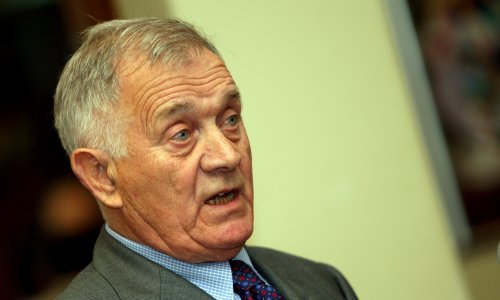In the Hague trial of the three Croatian generals Croatia has shown that it is a modern, law-based country, and it should not bear the burden of the verdict because the verdict refers to individuals, not the entire people or the entire country, according to comments by US diplomats and legal experts on the response in Croatia to the Hague tribunal's non-final verdict in the case of generals Ante Gotovina, Mladen Markac and Ivan Cermak.
US legal expert Judith Armatta, who follows war crimes trials in The Hague, told the Voice of America that she believed that Croatians were taking on too big a burden. The tribunal's verdict is not a verdict against the country or the people, but against two individuals. The verdict makes it clear on a number of occasions that the defence was legitimate, as was regaining control over the occupied territories, she said.
However, killings, arson and plunder, which were systematic and did happen after Operation Storm, are war crimes, she added.
Thomas Countryman, Deputy Assistant Secretary of State in charge of relations with Southeast European countries, told the Voice of America that he could understand the Croatians' response to last week's verdict.
Of all the Balkan countries, Croatia has made the most progress in respect for the rule of law in the last ten years, and regardless of the political opinion now, it is very important that reactions be dignified and calm and in line with the rule of law, Countryman said.
Former US Ambassador to Croatia Peter Galbraith believes Croatian citizens should be proud that their country has become a solid, modern, law-abiding country, which he said was evidenced by the fact that Croatian authorities had provided the Hague tribunal with the transcript of the Brijuni meeting which seriously incriminated participants in that meeting, and that they had handed over the generals to the tribunal.
Croatia did something without precedent in international relations. It transferred to an international court war crimes indictees, its generals who won a war. Generals are usually tried, if at all, after wars which their side has lost. This is the first time the winners were put on trial. I know that such decisions are painful, but Croatia's decision shows that the country wants to respect the law, said Galbraith.
In similar circumstances, the United States would probably not have acted the way Croatia did, he said.
Galbraith said that the arson, plunder and killings that happened after Operation Storm, which Gotovina and Markac were convicted for, could have been prevented.
It is tragic that (Croatia's first president Franjo) Tudjman and the people around him tarnished a legitimate military operation that was of crucial importance for putting an end to the war in Croatia and Bosnia and Herzegovina, Galbraith said, adding that at the time he had warned Tudjman of possible acts of revenge and that those responsible for war crimes must be punished.
But Tudjman ignored it and now his subordinates are facing the consequences, Galbraith said.




































